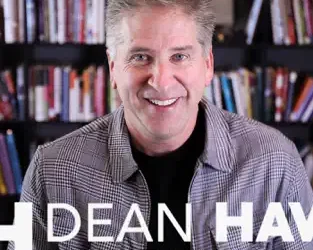Leaders who are frank, candid and honest are sometimes called harsh, critical or cold. While no leader should be the latter, there is a great deal of value in being a truthful leader, while also being a warm person. In the video below, I discuss how organizations benefit and perform better when the leader is honest.
Video footage courtesy of Fellowship of Companies for Christ International (FCCI).
Teams and organizations benefit and perform better when the leader is honest. After all, truthfulness is simply being aligned with reality. When reality is avoided or “spun”, the organization, by definition, is psychotic. It has broken from reality. It is not anchored in what is fact and true. And the fruit is not good fruit. So be a leader who lives in, and conveys honesty, and everyone wins. Here are some tips that will help you:
- Be the first one to deliver tough info. The message may be about your organization’s performance problem, financial challenge, or a personnel issue. But don’t have someone else deliver it for you, and above all don’t wait until people come to you to find out the info. Teams and employees feel secure when they know their leader will be calling or visiting them to tell them something that is difficult. When a courier says it, or when they have to contact you, they lose faith and trust.
- Be the first to admit your own mistakes. We all fail, and sometimes leaders fail spectacularly! But don’t have someone have to ask you about your failure, or have to learn it from the break room gossip. Go to your people and tell them as soon as possible that you dropped the ball. It will not be fun, but your healthy people will respect you more. A client of mine avoided telling one of his employees that she was not getting the bonus she expected, because he dreaded her response. Finally, he went to her and told her two things: she wasn’t getting the money she anticipated, and why, and why he had waited so long to tell her. She did not enjoy the talk, but she respected him and his ownership.
- Inspire without derailing. Good leaders vision their people and get them inspired to accomplish great things. At the same time, don’t let your inspiration cause you to promise things that won’t happen, or deceive people for what they will be receiving. Get them excited, but only promise what you will deliver to them.
- Say “no” on a regular basis. As a leader, you want your troops to be happy and positive. You like them and you know a positive environment lends itself to higher performance. It is often a temptation, when they ask you for time you don’t have, resources you can’t allocate, or permission you don’t want to give, to avoid saying no, or letting them down easy over time. I even had one CEO whose team told me that when she said “I don’t know”, they had learned that she meant “no”, and that was not a good thing! Instead, make a clear, respectful and full eye-contact “no” a normal part of your day. Normalize it, and your people will have clarity.
Ultimately, honesty wins in the long run. Best to your leadership.





